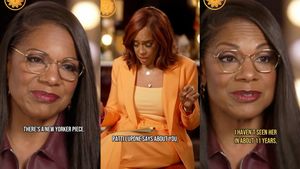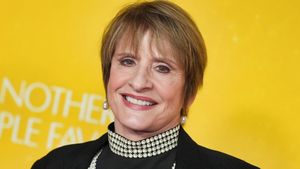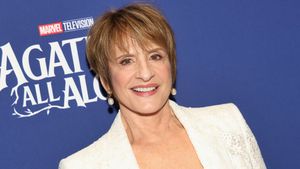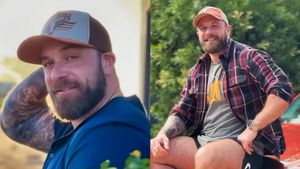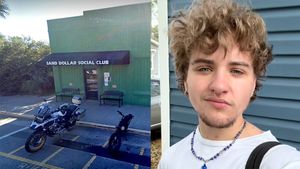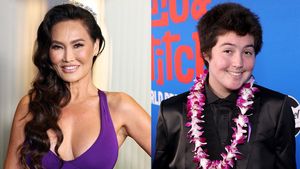A transgender woman, an independent bookstore, and other individuals and institutions have come together to file a lawsuit challenging Montana’s ban on drag queen story hours.
Montana’s ban “is an unconstitutional content- and viewpoint-based restriction on free speech,” says the suit, filed Thursday in U.S. District Court in Butte. Moreover, the law is vague and confusing, and could be construed to ban many types of performances, the suit asserts.
House Bill 359, which took effect immediately when Republican Gov. Greg Gianforte signed it into law in May, bans drag story hours at publicly funded schools and libraries, and it also prohibits any “sexually oriented” performances at those venues or on any public property where children are present.
Violators will be fined and are subject to lawsuits; they can be sued up to 10 years after the performance took place and even if a minor’s parent or guardian allowed the child to attend. It appears to be the first state law banning drag story hours even if they include no content that could be perceived as sexual — not that such story hours do.
“HB 359 is calculated to target the LGBTQ+ community, but the bill overshoots this sinister mark,” the lawsuit says. “HB 359 threatens teachers, artists, small businesses, and cultural and scientific institutions with criminal and professional sanctions.”
The suit calls the law “a Frankenstein’s monster” incorporating all the worst provisions of versions proposed in Montana and anti-drag laws struck down elsewhere. “An entity that receives any state funds — e.g., any art museum or independent theater — cannot display a live or prerecorded performance with essentially any sexual content, regardless of artistic merit and even if the audience is limited to adults,” it continues. “HB 359’s penalty provisions are as confusing as they are draconian.”
The law “encompasses many non-obscene theatrical, film, and drag performances — even a performance that includes costume changes,” it says. “As a result of this mountain of confusing and overbroad definitions, plaintiffs have well-founded fears of criminal and civil liability. A reasonable person cannot know what is and what is not restricted by law.”
It further notes that even before HB 359, Montana banned “obscene” performances, while “drag is not definitionally obscene; it is a form of expression that exaggerates, satirizes and critiques gender. A drag performance may be obscene, just as dance performances, films and still images may be obscene. HB 359 adds nothing to existing protections for children in Montana.”
Those suing are Adria Jawort, a transgender Native American woman whose planned speech on LGBTQ+ and Two-Spirit history at the Butte Public Library was canceled in June because local officials feared it would violate the law; Rachel Corcoran, a Billings teacher who often gives lessons in costume as historical or fictional characters, both male and female; the Montana Book Company, an independent bookstore in Helena; Imagine Nation Brewing Company in Missoula, which has hosted drag shows; BumbleBee Aerial Fitness in Helena, whose instructors fear their performances could violate the law; and the Myrna Loy theater, also in Helena, whose administrators say certain films and stage performances could run afoul of the law; the Imperial Court of the State of Montana, a drag group; the Western Montana Community Center, an LGBTQ+ center in Missoula; and the Great Falls LGBTQ+ Center. They are represented by Upper Seven Law, a nonprofit law firm.
The suit names as defendants Montana Attorney General Austin Knudsen, Superintendent of Public Instruction Elsie Arntzen, and Butte-Silver Bow County Administrator J.P. Gallagher, who canceled Jawort’s lecture. The attorney general’s office has not commented on the suit.
A federal judge has ruled Tennessee’s anti-drag law unconstitutional. State officials plan to appeal.




































